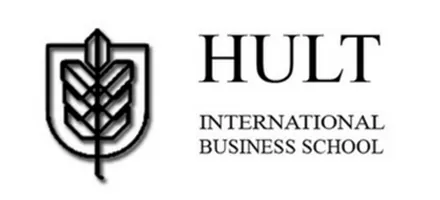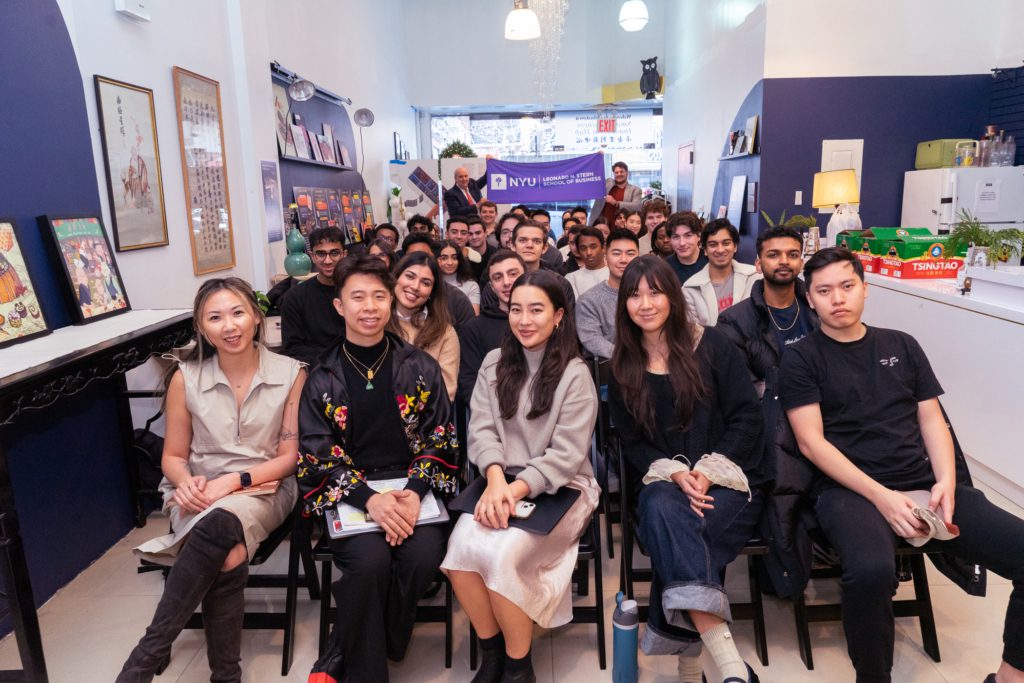
NYU Stern undergraduate students deliver their final presentations to clients from Welcome to Chinatown as part of the NYC Consulting Capstone. Courtesy photo
This year, as part of Local Law 97, New York City building owners and managers will start facing fines or other actions for buildings that do not meet energy efficiency and greenhouse gas limits.
That’s potentially a whole lot of buildings to bring up to code.
Enter Spring Bank, the first chartered bank in the Bronx in a generation, and the first B Corp bank in New York City. (B Corp certification is awarded to companies that are leaders in the global movement for an inclusive, equitable, and regenerative economy.) Spring Bank is looking to create a new green lending product for building owners who need to replace leaky windows or doors, install solar panels, upgrade heating and cooling systems, or complete other renovations to make their buildings more efficient.
So, how does a community bank, creating a whole new financial product, evaluate how that fits into their operations? Craft a go-to-market strategy? Make it competitive? Where do they even start?
How about in a classroom of enterprising undergrads at New York University’s Stern School of Business?
NYC CONSULTING CAPSTONE
Stern undergrads spent weeks – the entire semester, in fact – working solely on Spring Bank’s green lending challenge. It was the only assignment in their NYC Consulting Capstone, a new course launched this fall.
“In a class of 36 students, divided into teams of four, a thousand flowers will bloom. A bunch of different ideas will be generated, and that’s what I think the clients really benefit from,” says Matt Statler, the Richman Family Director of Business Ethics and Social Impact Programming at Stern. He is leading the capstone and teaching one of the sections.
“The partners that sign up for this, they know what they’re getting: A bunch of really smart undergraduate students grinding away on stuff they don’t necessarily always have the time to do. For them, it’s value-add just like a consulting firm would be with the spin that this is Gen Z. There are unique insights that this demographic of people can bring that maybe even the big consulting firms can’t promise.”
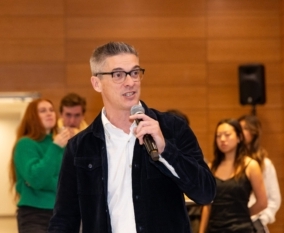
NYU Stern Clinical Professor Matt Statler, who designed and led Stern’s NYC Consulting Capstone, speaks with students during the capstone’s fall semester final plenary. Courtesy photo
Stern’s NYC Consulting Capstone is essentially experiential learning at scale. Beginning with the Class of 2024, the capstone is now required of every Stern senior – about 650 students per year.
It’s one piece of Stern’s re-structured International Study Program (ISP) which previously required every Stern junior to embark on a global study trip as part of their capstone course. The restructure separated the three most important aspects of the ISP – the global experience, the capstone, and community building – and turned them into three distinct programs. This innovation is why we chose Stern as one of our 10 Undergrad Business Schools to Watch for 2023.
The new capstone is now offered through about 10 different sections per semester, each consulting with a separate NYC business, non-profit, or organization to work on a unique, real-world business case. Examples include TIFIN, founded by a Stern alum, which is developing an AI-enabled investment advisory product for millennial and Gen Z investors. There’s also Space, the “Uber Eats of personal storage,” an on-demand, by-the-box storage startup.
And there’s Spring Bank which is launching a business line that does not yet exist in the market: “Insights from a group of very bright students with few predisposed notions of the right and wrong way to do things in the business world holds the promise of a fresh perspective,” Demetris Giannoulias, Spring Bank CEO, tells P&Q.
“We know that professors at Stern are at the forefront of sustainable business strategies, and we believe that the students coming to the project with this training would look at the problem in a way that could help us innovate in the way that we – as B Corp and a mission based business – are interested in innovating.”
OUTRUNNING THE AI ROBOTS
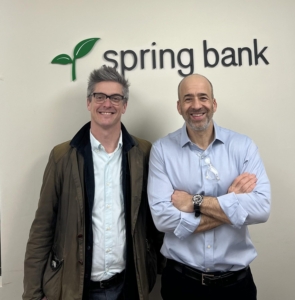
NYU Stern Clinical Professor Matt Statler with Demetris Giannoulias, CEO of Spring Bank, during an onsite visit with undergraduate students as part of the NYC Consulting Capstone. Courtesy photo
You might say the NYC Consulting Capstone is perfectly named. It’s, one, a capstone in every sense of the word. Students work all semester on their entity project.
It’s, two, New York City centric, leveraging all the advantages the location offers. That includes the partnerships already forged through Stern’s vast network, from alumni of both NYU and the business school as well as its numerous relationships with the broader community. It also includes the sheer number of diverse industries across NYC, all accessible with a MetroCard. Think AI finance, real estate, healthcare, sustainability, entertainment, media, and countless others.
And, three, it’s consulting. No matter a student’s career aspiration or concentration, they all take the consulting capstone. Classmates are divided into cross-functional teams, just like a team from McKinsey, Bain or BCG would be.
Stern designed the capstone intentionally as a consulting project because of the industry’s intersection with so many business functions, roles, and sectors. Think about what consultants do: They research and bring themselves up to speed quickly on topics they may have never before encountered. They analyze complex information and try to innovate solutions. They make recommendations and create compelling presentations. They confront and push through ambiguity and uncertainty, no matter how uncomfortable it may be.
“Those are the types of skills that we thought really cut across many if not all business functions,” Statler says. “Surely not all Stern students will go on to work in consulting, but most of them, if not all of them, will one day find themselves hiring consultants or working with consultants. It behooves them, even if that’s not their profession, to know what that profession is.”
One of the key goals of the new course is to give students the space to build skills that cannot be automated. In an era of artificial intelligence, it’s the duty of educators to future-proof graduates for an ever changing workplace, Statler says. If AI bots will be able to solve all problems for which the answer is known or is knowable, humans have to distinguish themselves from the machines.
“These human capacities – to be self aware, to empathize with the needs of others, to check in with other people and integrate seemingly disparate sources of information – these are the skills that go with consulting as we’ve defined it,” Statler says.
“But those are also the skills that will make sure these students are positioned for a lifetime of learning and lifetime of outrunning the robots, gainfully employed in organizations.”
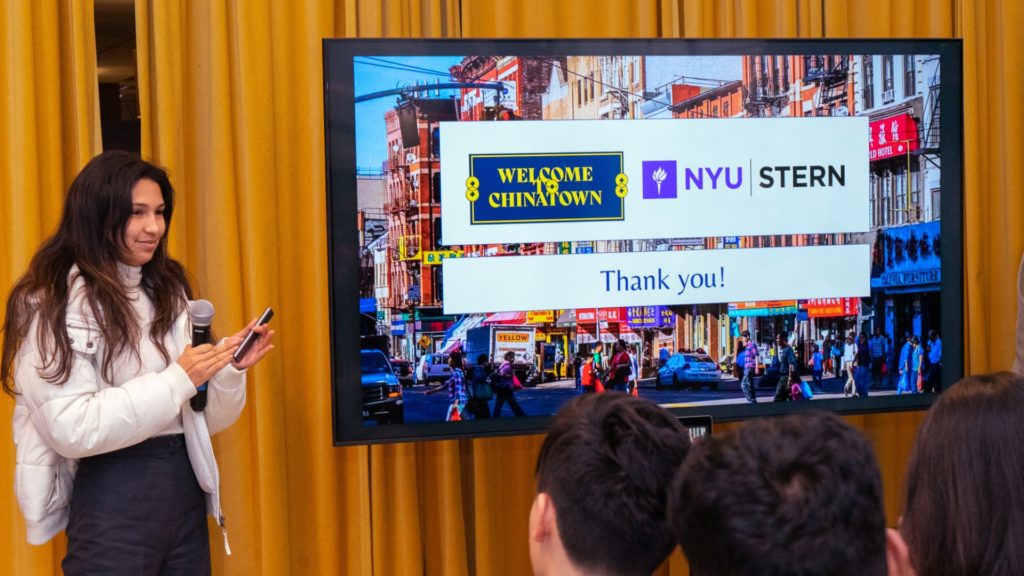
NYU Stern Undergraduate College Senior Paula Sandoval Santamaria engaging in her group presentation to Welcome to Chinatown client leads. Courtesy photos
‘ONE OF STERN’S MOST IMPACTFUL CLASSES’
Paula Sandoval Santamaria is a Stern senior earning concentrations in both Finance and Computing & Data Science. She’s also minoring in Computer Science and Math. She won’t be pursuing a consulting job after graduating this May. Still, the NYC Consulting Capstone was extremely valuable, she says.
“Overall, it has been one of the most impactful classes I have taken at Stern,” she tells P&Q.
“It demonstrated the true reach of ‘business’ as a career and how what we are taught in our classes can apply to so many different situations.”
Her class worked with Welcome to Chinatown, an NYC nonprofit which runs a small business accelerator for economic development in the neighborhood. Each four-person team was assigned a small business working with the non-profit. Vic Lee, Welcome to Chinatown CEO, and several local business owners came to the class to explain the non-profit’s mission, current operations, long-term goals, and current needs.
Santamaria’s team was first charged with exploring the accessibility of health insurance in the community, but that focus broadened after meeting with local business owners. That, in fact, was one of the biggest successes of their project, she says.
“While (access to health insurance) must be addressed, so many community needs such as mental health support, green spaces, childcare, etc., all are vital parts of a healthy community. When we began looking at this broader definition of wellness, the project naturally came together and began to align with the sentiment we had received from speaking to community members,” she says.
As a course, the NYC Consulting Capstone is meant to give students hands-on experience applying the skills they’ve learned throughout their Stern undergrad – working with clients, creating pitch decks, problem solving, teamwork, and more. Santamaria applied all these.
“An unexpected lesson we learned was the importance of communication in so many aspects,” she says. “From working with outside organizations for hypothetical partnerships to coming up with means of communication for small business owners whose first language was not English, all while keeping the Welcome to Chinatown team up to date, was crucial for the project to be successful.”
DON’T MISS: NYU STERN LAUNCHES 3 INNOVATIONS TO ITS UNDERGRAD PROGRAM AND UW FOSTER’S ENVIRONMENTAL INNOVATION CHALLENGE: SOLUTIONS THROUGH A BUSINESS LENS





